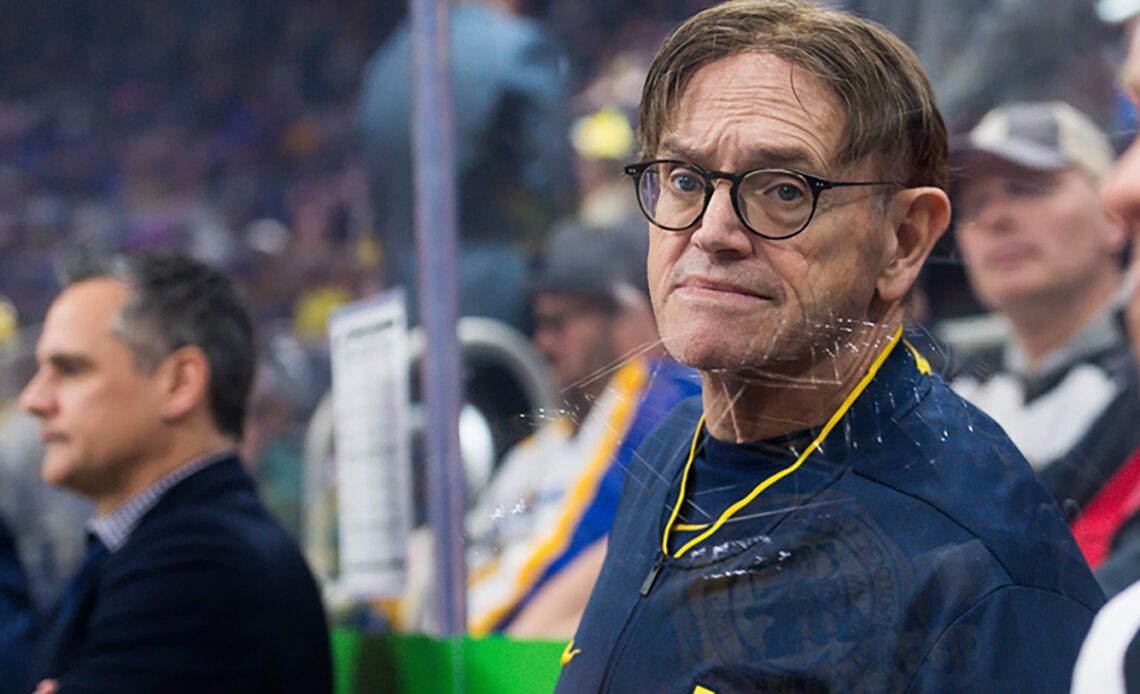Last Friday night, just prior to their matchup, the lights dimmed and the No. 5 Michigan and Lake Superior State hockey teams lined up on their respective sides of the ice for a shared moment of silence.
It was a solemn moment, but it also served as a clear reminder of what the Wolverines were playing for this past weekend. They weren’t just playing for themselves, or glory, or their future careers; they were playing for the memory of their longtime equipment supervisor — and friend — Ian Hume, who had sadly passed away the night before after a battle with cancer.
In every play on the ice after that moment of silence, it was clear that Hume’s presence was still with his team. After two dominant performances in which Michigan both swept and outscored the Lakers, 10-3, Hume was top of mind for many of the Wolverines’ players and staff postgame, and his memory had only served to push them further.
“He was a huge part of this organization,” junior defenseman Jacob Truscott said. “ … He was great to us, and obviously it’s sad to see someone like that go. He’s a huge part of our team. We’ve just got to honor him and keep playing for him every game.”
From conversations with players and staff one thing is clear: Hume’s impact will be felt far past his 33-year tenure at the University of Michigan. For starters, it’s clear that he was an expert at his job. After quite literally stumbling into the role under long-time coach Red Berenson, Hume spent the next three decades honing his craft. And his dedication to his work didn’t go unnoticed.
“I’ve known (Hume) for a long time,” Michigan coach Brandon Naurato told The Daily. “ … And he’s a legend, very well respected by equipment managers from pro hockey to college.”
Freshman forward Adam Fantilli shared a similar sentiment.
“He was an amazing guy,” Fantilli said. “An amazing equipment manager and I know he loved this team with everything he had.”
While on paper Hume’s job title may have been equipment supervisor, a position usually seen as administrative, he understood that his role extended far past what most would expect. He understood himself to be an outlet for players to just talk. He consistently made himself available and instituted an open door policy for players to come in and talk about anything, hockey or otherwise.
And it’s clear that while that wasn’t necessarily asked of him, it was something players needed. He…
Click Here to Read the Full Original Article at "ice hockey" – Google News…

